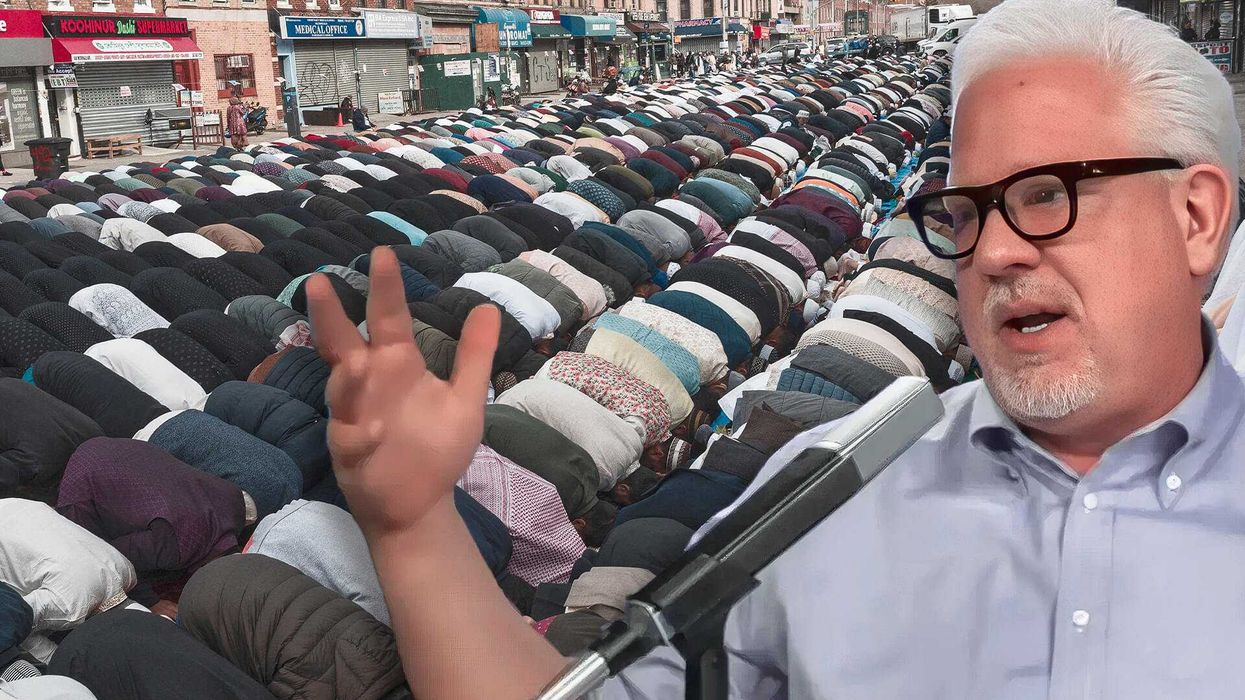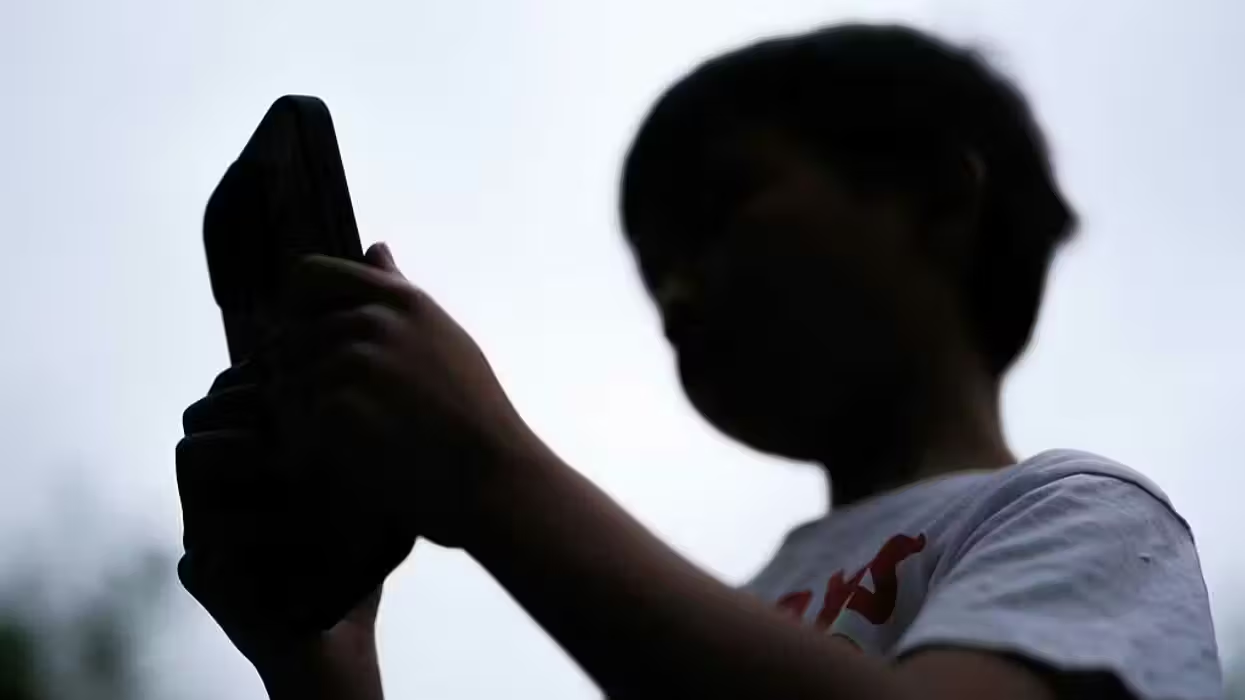
© 2025 Blaze Media LLC. All rights reserved.
Muslim Prisoner's Battle Over His Beard Will Be One of the Supreme Court's Next Big Religious Liberty Cases
September 05, 2014
"A prison’s no-beard policy 'assists in the accomplishment of institutional security by minimizing an inmate’s ability to alter his appearance rapidly and significantly.'"
The Supreme Court is slated to step into yet another heated religious liberty debate when it hears arguments in October for Holt vs. Hobbs, a legal battle that involves the power of prison systems to forbid Muslim inmates from donning thick beards and facial hair.
The case centers around Gregory Holt, a man who is serving a life sentence for domestic battery and burglary in Arkansas. Holt, who also goes by the name Abdul Maalik Muhammad, attempted to grow a half-inch beard, but was told that it was barred under prison code.
Officials have cited security concerns in defending their reasoning, claiming that inmates like Holt could use facial hair to conceal weapons, among other security issues, the New York Times reported.
While the majority of state prison systems in the United States allow short beards, Arkansas is among the seven states that have much stricter regulations.
As the Times reported, mustaches are allowed, though they must be trimmed, and only those with dermatologic issues can have short beards. But Holt didn't fit this category and was, thus, denied.
"On June 28, 2011, Mr. Muhammad, representing himself, filed a lawsuit seeking the ability to wear a half-inch beard in accordance with his faith," according to the Becket Fund for Religious Liberty, the conservative legal firm representing him. "Mr. Muhammad lost in federal trial court and in the Eighth Circuit Court of Appeals in St. Louis."
But that hasn't stopped his quest to maintain a short beard — one that he says would be in accordance with his Muslim faith.
With the Becket Fund and Douglas Laycock of the University of Virginia representing him, Holt appealed to the Supreme Court and the justices are currently allowing him to wear the one-half inch beard until his case is heard.
While Holt and his attorneys have argued that there is no danger in allowing the beard, the state has countered with the aforementioned safety concerns and with the notion that prisoners who escape can more easily alter their appearance if long beards are allowed, the Times added.
"Inmate identification is vitally important both inside and outside the prison," a state brief reads. "A prison’s no-beard policy 'assists in the accomplishment of institutional security by minimizing an inmate’s ability to alter his appearance rapidly and significantly.'"
But the Becket Fund argues that this is a religious freedom issue and that there aren't compelling reasons for the state to crack down on this personal right.
"In the case of Holt v. Hobbs, Abdul Muhammad, an Arkansas inmate, has been denied the ability to grow the ½ inch beard his Muslim faith commands — even though Arkansas already allows inmates to grow beards for medical reasons, and Mr. Muhammad’s beard would be permissible in 44 state and federal prison systems across the country," reads a statement on the firm's website.
 A graphic designed by the Becket Fund for Religious Liberty to highlight the Holt vs. Hobbs case (Becket Fund for Religious Liberty)
A graphic designed by the Becket Fund for Religious Liberty to highlight the Holt vs. Hobbs case (Becket Fund for Religious Liberty)
Holt's case comes after the Supreme Court granted Hobby Lobby, a craft store chain, the legal right to refuse providing contraception based on its owners' religious views. Now, some are wondering whether this ruling will impact Holt's chances at gaining the right to a religiously motivated beard.
"After going out on a limb by providing newfound rights to corporations are they now going to turn around and say that prisoners can’t grow beards?," Marci A. Hamilton, a professor at New York City's Cardozo Law School, told the Times.
Arguments will be heard on October 7, the second day of the Supreme Court's next term.
TheBlaze also recently reported that Reed v. Gilbert, an appeal by Good News Presbyterian Church, which claims that officials in Gilbert, Arizona, discriminated against the church by forcing the removal of signs informing the public about worship services, will also be heard by the court next term.
Read more about that case here.
(H/T: New York Times)
Want to leave a tip?
We answer to you. Help keep our content free of advertisers and big tech censorship by leaving a tip today.
Want to join the conversation?
Already a subscriber?
Billy Hallowell is a digital TV host and interviewer for Faithwire and CBN News and the co-host of CBN’s "Quick Start Podcast."
Billy Hallowell
Billy Hallowell is a digital TV host and interviewer for Faithwire and CBN News and the co-host of CBN’s "Quick Start Podcast."
more stories
Sign up for the Blaze newsletter
By signing up, you agree to our Privacy Policy and Terms of Use, and agree to receive content that may sometimes include advertisements. You may opt out at any time.
Related Content
© 2025 Blaze Media LLC. All rights reserved.
Get the stories that matter most delivered directly to your inbox.
By signing up, you agree to our Privacy Policy and Terms of Use, and agree to receive content that may sometimes include advertisements. You may opt out at any time.






